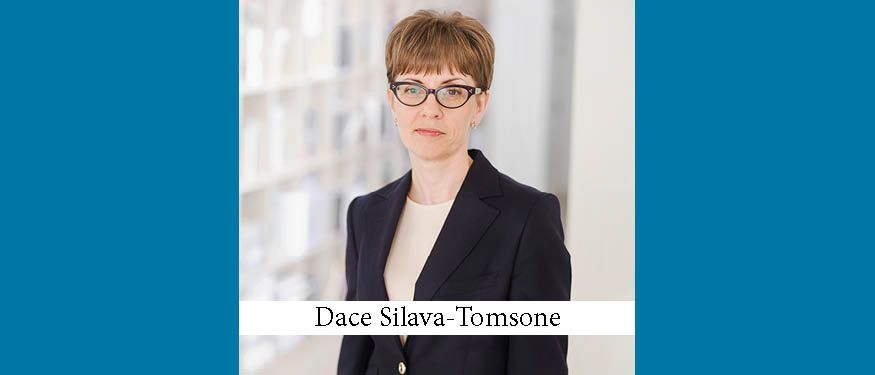“I would single out a couple of developments, first of all in Construction Law, which I do a lot of” begins Dace Silava-Tomsone, the Managing Partner of Cobalt in Riga, when asked for the Buzz in Latvia.
A couple of years ago the country enacted what Silava-Tomsone describes as a "major overhaul of the construction law" to make it more attractive to investors, but also in response to public outcry following the November 21, 2013 collapse of the roof of the Zolitude shopping center in Riga which killed 54 people. The resulting law was rushed into force a bit precipitously, Silava-Tomsone reports, “so it was impacted by post-tragedy emotions and political pressure, and ultimately the overhaul was not too successful. The construction process was supposed to become simpler and more efficient, but in fact it became even more cumbersome than before.”
Several years of controversy and debate have followed about how it should be amended, “to ensure that the processes work efficiently and with due regard to safety and sustainability, as well as to clarify what limits on liability exist for the various roles of persons involved in the process — authorities, developers, contractors, owners, etc..” The new regulation already has undergone a number of cosmetic changes, but it is still far from satisfying all the market players. Amendments are being prepared and considered now, and Silava-Tomsone hopes it will reach the Parliament soon. “Investment into Latvian real estate lags behind our Baltic neighbors, and lack of a proper legal framework is one of the reasons. New initiatives aim to shorten the overall length of the construction process from permitting to the commissioning stage, introducing electronic processing of designs, etc. From a lawyer’s perspective it’s essential,” she says, “to shift emphasis from control and supervision exercised by municipal and state institutions to straightforward liability provisions for various roles which would work as a self-balancing mechanism. So this is certainly a very welcome development.”
Overall, Silava-Tomsone says, business is good in Latvia, as it has been for the past couple of years. She expects the trend to continue going forward as well. “There are always ups and downs, of course,” she notes, pointing out that M&A in Q4 of 2016 was a bit slow as was construction for the entire 2016, but the work that was in the pipeline then is starting to manifest itself, so “activity is increasing.” She smiles. “Certainly our office is very busy both on the buyer's and the seller’s side.”
When asked about the ongoing consolidation of law firms in Latvia, most recently in the form of Ellex Klavins’ merger with Glimstedt’s Riga office, Silava-Tomsone is positive, calling it “certainly good for our market” after a “stagnant period for the last 10 years, during which firms grew organically, which is not always the fastest way to reach the necessary size and the right practice mix to best serve clients.” She points out that her own firm merged with Borenius in Latvia and Estonia — and took over a sizable team from Borenius in Lithuania as well — at the end of 2015 and she believes that the mergers and pan-Baltic alliance re-groupings that followed demonstrate that “other firms see the wisdom of it," and that "the market has matured to the stage where it has become difficult to develop business any further unless some critical size is reached and strategic views of the partners are aligned.” The process may not be over yet; Silava-Tomsone expects to see still more consolidation on the Latvian market within the next year.
“I still believe that we’re at the stage that's good for clients,” she says. “Firms in Latvia were too small, and not always able to offer full service and deep specialization across the board, so this process means that client service will be improved.”

















